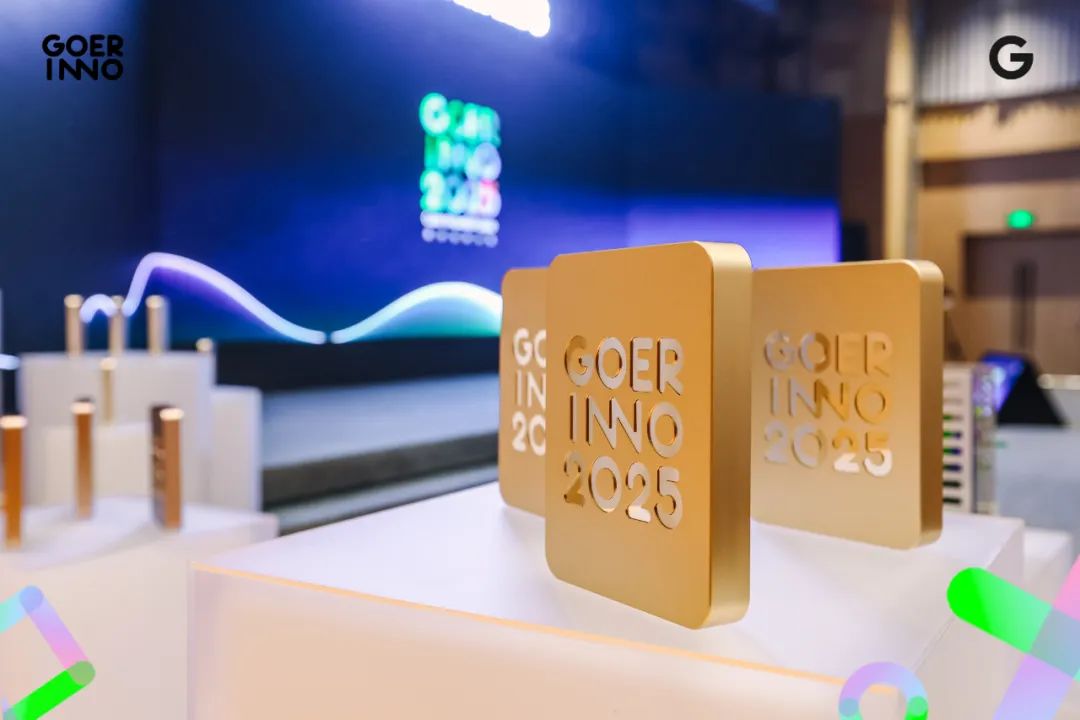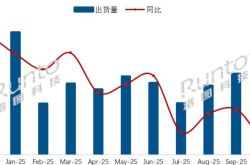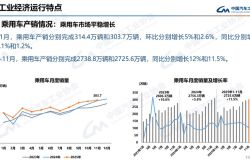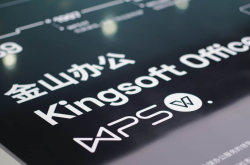Global Consumer Electronics Giants Focus on Shandong
![]() 08/22 2025
08/22 2025
![]() 593
593
Since the advent of DeepSeek earlier this year, global investors have re-evaluated China's combined technological innovation and manufacturing prowess. However, China's technological advancements have never been confined to software alone but rather a harmonious blend of software and hardware.
Just as smartphones and the mobile internet ecosystem have achieved mutual success, artificial intelligence (AI) large models now bring AI-generated content (AIGC) technology, which not only enhances the 3D digital content ecosystem and users' metaverse experiences but also propels the comprehensive outbreak of XR smart terminals, known as the new generation of computing platforms and gateways to the metaverse.
Globally, a wave ignited by AI glasses is reshaping the long-silent consumer electronics industry.
A Counterpoint report predicts that global AI smart glasses shipments will soar by 210% year-on-year in 2024, surpassing the 2 million mark for the first time. By the first half of 2025, global smart glasses shipments increased by 110% year-on-year, with AI smart glasses accounting for 78% of total shipments, a significant leap from 46% in the first half of 2024 and 66% in the second half.
Behind this surge are robust sales of popular AI glasses co-launched by Meta and Ray-Ban, the entry of new players like Xiaomi, and the pivotal role of core suppliers like GoerTek.
From dominating over 80% of the global high-end VR headset market during its peak to seizing opportunities presented by the AI glasses boom, GoerTek has consistently led the XR field with its vertical integration capabilities and R&D innovation prowess.
On August 21, Fortune China released its second annual Fortune China Tech 50 list, recognizing Chinese tech companies impacting the world. Among them, GoerTek stood out prominently.
Fortune's evaluation of GoerTek is as follows:
GoerTek's growth trajectory closely mirrors the rapid development of the consumer electronics market and the application of AI technology. Today, its customer base spans multiple fields, including consumer electronics, automotive electronics, and smart homes, ranking first in global shipments of high-end VR headsets. With innovative solutions in precision manufacturing, smart wearables, and acoustics, GoerTek has become a crucial link for tech giants to bring their innovative products to consumers.
This commendation reflects an objective reality: a significant portion of the intelligent hardware products of global consumer electronics giants are designed and produced in collaboration with GoerTek.
Notably, on this year's Fortune China Tech 50 list, Shandong province had four companies included: GoerTek, Wanhua Chemical, Innovation Intelligence, and Luoshi Robotics, three of which are closely related to AI.
In addition to GoerTek, Innovation Intelligence specializes in providing AI-related products and business solutions for enterprises, while Luoshi Robotics focuses on technological research and development in new-generation flexible robots, lightweight industrial robots, and high-end intelligent equipment.
For Shandong Province as a whole, GoerTek's inclusion on the list signifies its potential to emerge as a world-class technology giant in the consumer electronics field. In the upcoming wave of consumer electronics transformation led by XR, Shandong bears the promise of a global consumer electronics boom.

1
In the consumer electronics sector, smart wearable devices, represented by VR/AR, are seen as the most likely sub-sector to ignite the market after the mobile phone and PC eras.
Globally, with the potential entry of tech giants, the accelerated development of the 'AR+AI' trend, and the maturing of generative AI technology, more companies are positioning AI smart glasses as a key platform for AI integration, making market expansion for AI smart glasses inevitable.
Judging from the first half of 2025 performance, global smart glasses shipments increased by 110% year-on-year, with the proportion of AI smart glasses further rising to 78%, demonstrating a strong driving effect.
Whether in the VR or AI glasses sector, GoerTek has always been a frontrunner.
In 2012, through collaborations with Sony and Samsung, GoerTek recognized the huge market opportunity presented by VR and began to layout the virtual reality industry.
At its peak, GoerTek accounted for over 80% of the global market share for high-end VR headsets, but it also foresaw opportunities in the AR field.
Since 2023, GoerTek has intensified its layout in the smart glasses sector.
In its 2023 annual report, GoerTek directly stated that it would actively follow the evolution and application of AI technology and continue to deepen its layout in emerging smart hardware and precision components.
In its 2024 annual report, GoerTek reaffirmed its commitment to deepening its corporate strategy of 'precision components + smart hardware,' promoting the integration of AI technology and smart hardware, and optimizing its intelligent manufacturing system.
According to the 2024 annual report, among the nine R&D projects GoerTek is currently pursuing, at least four are related to AR and AI glasses.
Public information reveals that GoerTek's current core customers for AI glasses OEM include Meta, Xiaomi, Huawei, etc., with technology covering optical modules, acoustic components, and complete machine manufacturing.
On the evening of August 21, GoerTek disclosed its 2025 semi-annual report. The report shows that the company achieved operating revenue of 37.549 billion yuan in the first half of the year, with a net profit attributable to the parent company of 1.417 billion yuan, an increase of 15.65% year-on-year.
During the reporting period, GoerTek was deeply engaged with leading domestic and foreign technology companies. Benefiting from the increased shipments of products such as smart glasses, the company's smart hardware business achieved revenue of 20.341 billion yuan, with gross margins increasing to 11.51%, up 2.27 percentage points year-on-year.
2
Starting from its acoustics business, GoerTek gradually ventured into sectors such as VR, AR, and AI glasses, evolving into a global consumer electronics giant, relying on its 'vertical integration' technological innovation strategy.
Under the 'vertical integration' strategy, GoerTek transcends the traditional OEM model, participating in the entire lifecycle of product research and development, design, and manufacturing for global technology giants. This establishes a deep moat for the company in key technological areas such as complete machine manufacturing, acoustic components, sensors, and optical modules, while also ensuring profit margins.
According to GoerTek's disclosed 2025 semi-annual report, the company has increased its R&D investment, focusing on emerging smart hardware fields such as XR optics, AI glasses, and smart wearables. In the first half of 2025, the company's R&D investment reached 2.135 billion yuan, accounting for 5.69% of operating revenue.
In terms of specific actions, GoerTek is continuously consolidating its vertical integration capabilities. It first acquired Mia Precision and Changhong Industrial with billions of yuan to strengthen its precision components business. Subsequently, it indirectly invested $100 million in the UK Micro-LED giant Plessey to complement its capabilities in the XR optics sector, particularly in the microdisplay segment.
Both Mia Precision and Plessey have close collaborations with Apple, Meta, etc.
Mia Precision has long provided precision metal parts for globally renowned technology companies such as Apple and Tesla, including smartwatch structures, straps, and metal casings.
Plessey enjoys good cooperative relationships with internationally renowned AI glasses and AR augmented reality product manufacturers. In 2020, Meta reached an agreement with Plessey to obtain exclusive technology licensing for the latter's AR displays and purchase all AR screens produced by Plessey.
Apart from investing and acquiring leading enterprises in the industrial chain, GoerTek is also continuously enhancing its technological innovation capabilities internally, achieving breakthroughs in microdisplay areas such as Micro OLED or Micro LED screens.
At GoerTek's first innovation conference 'Goerinno2025' held on July 19, the top award, the 2025 Special Award for Technological Innovation, was presented to the self-developed Micro OLED display module project team. The team developed a globally leading 4K silicon-based OLED microdisplay from scratch, with core display parameters such as pixel density and refresh rate reaching industry-leading levels.

Currently, GoerTek has invested in the construction of a phase one project for the assembly of high-silicon-based OLED microdisplay modules in Qingdao, primarily producing 1.3-inch silicon-based OLED display modules.
Furthermore, aiming to enhance the product experience of VR, AR, and AI glasses, GoerTek continuously optimizes its design to improve user satisfaction.
At the CES 2025 International Consumer Electronics Show, GoerTek launched the lightweight AR reference design Mulan 2, weighing only 36 grams. Mulan 2 is equipped with holographic waveguide lenses and Micro LED light engines, achieving minimal light leakage and providing users with clear and realistic visual effects.
In terms of optical capabilities, GoerTek Optics actively deploys advanced etching processes and has launched the full-color light waveguide display module Star G-E1. Paired with a Micro-LED full-color light engine (based on X-cube color combination), the product can achieve a peak brightness of 5000 nits, with brightness uniformity exceeding 45% and color difference less than 0.02.
3
From the perspective of industrial development across Shandong Province, GoerTek's breakthrough in the VR and AI glasses fields has given Shandong hope of leading the new round of consumer electronics transformation.
In fact, as one of the few locally grown consumer electronics giants in Shandong, GoerTek has been spearheading the development of emerging industries such as virtual reality and the metaverse in the province.
In September 2023, Shandong issued an opinion on the innovative development of the metaverse industry, stating that it would 'strengthen Qingdao's core R&D and innovation capabilities in the metaverse, optimize Jinan's digital tools and Weifang's complete machine manufacturing industrial engines, and expand the application scale of the metaverse industry in cities such as Yantai and Weihai.'
Behind Qingdao's metaverse R&D and innovation and Weifang's complete machine manufacturing lies GoerTek.
Relying on the current foundation of the virtual reality industry, Shandong also needs to seize the opportunity presented by the global AI glasses market explosion and intensify its layout in key industrial chains and content ecosystems.
For example, as the only national-level innovation center for the virtual reality industry, the National Virtual Reality Innovation Center (Qingdao) has made cutting-edge layouts in areas such as video see-through, high-performance silicon-based OLED display technology, 3D graphics rendering engines, and key technologies for industrial metaverses, aiming to capture the industry's 'commanding heights.'
Whether in industrial manufacturing, healthcare, education and training, or entertainment and consumption, the combination of virtual reality and large models can create more diverse and valuable application scenarios.
In fact, the current popular AI large model generative video technology can be deeply integrated with the industrial film advantages of the Oriental Movie Metropolis, comprehensively enriching the 3D digital content ecosystem and users' metaverse experiences through AIGC.
Building on this foundation, efforts can be intensified to attract enterprises in the generative video production industry chain, continuously elevating the production standards of industrial films and 3A games, and adapting virtual reality hardware to a more comprehensive content ecosystem.
Simultaneously, with the growing momentum of 'trade-ins' and digital products such as mobile phones and tablets being included in national subsidies, Shandong's consumer electronics market still holds immense growth potential. For instance, by leveraging the first-sale economy, the AI glasses consumer market across the province can be activated, accelerating the industrialization process of AI glasses from the market end.







